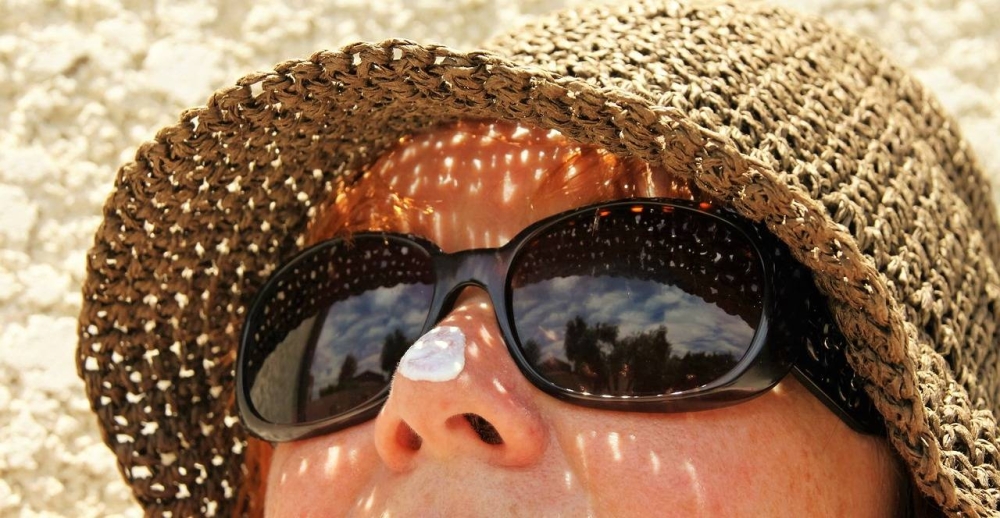Screening Up: Optimising the effectiveness of sunscreen products
MOHD SHAHIRI ABD GHAPAR
In recent years, the use of sunscreen has become increasingly prevalent in the community. This item becomes one of the most widely purchased and utilised cosmetics, particularly among female consumers. The use of sunscreen products is advantageous for consumers, as it prevents sunburn, slows the aging process, and reduces the risk of skin cancer.
However, this benefit can only be obtained if sunscreen products are used appropriately and in accordance with the user's requirements. For this reason, consumers should be mindful of precisely how to select sunscreen products and the proper means to apply them.
Factors to consider when choosing sunscreen products
Consumers are advised to take several factors into account when choosing the sunscreen products to be used to ensure that the product has an optimal effect. Some of these factors include:
1.Dosage form and content of sunscreen products
The sunscreen products are available on the market in several forms of preparation, such as creams, lotions, and sprayers. In addition to the form of the preparation, this product may also differ in its content. The choice of dosage forms and content that is compatible with the user's skin type can increase the effectiveness of sunscreen products.
For example, consumers with dry skin are recommended to choose products in the form of creams containing moisturizing substances such as ceramide, glycerin, and hyaluronic acid. Products in the form of water-based gels or lotions are more suitable for oily skin. This skin type can also benefit from products containing ingredients like green tea, tea tree oil, or niacinamide.
2. Spectrum of sunscreen productsThe spectrum refers to the ability of a sunscreen product to protect the user's skin from ultraviolet (UV) radiation. Two types of UV rays to avoid are UVA and UVB, as they both have unwanted effects on the skin. Therefore, consumers are advised to use a broad-spectrum sunscreen product, as this product can protect the skin from UVA and UVB rays.
3. Sun Protection Factor (SPF) Content
Sun Protection Factor (SPF) content is another factor that influences the efficacy of sunscreen products. SPF indicates the length of time that sunscreen products protect the skin from sunburn. For instance, products with an SPF of 30 can prevent sunburn on the skin 30 times longer than if there were no protection on the skin.
The choice of SPF is determined by the duration of sunlight exposure. Dermatologists advise using sunscreens with an SPF of at least 30 for optimal protection. Those who must spend more time in the sun should select products with a higher SPF.
4. Water-resistant sunscreen products
When a sunscreen product that has been applied to the skin is exposed to water, its efficacy begins to diminish. There are, however, products that are produced to be water-resistant for a certain amount of time. This period is indicated on the packaging label, and the majority of products have a water-resistant period between 40 and 80 minutes.
After the specified period is over, sunscreen should be reapplied to maintain skin protection. Consumers who are in areas where there may be a lot of water, such as on beaches or rivers, are advised to use products with these water-resistant formulations.
5. Proper use of sunscreen products
In addition to the factors that should be considered when selecting sunscreen products, their efficacy is also affected by how they are applied. The preferred method of application for sunscreen products is as follows:
Sunscreen should be applied to the skin 15–30 minutes before going out in the sun. This allows the product to be absorbed into the skin and provide optimal protection.
Apply an adequate amount of sunscreen to the entire face and body. Ensure that the product is used evenly, including on the hidden parts of the body.
The daily application of sunscreen is strongly recommended. On top of that, in order to maintain the product's efficacy, it must be reapplied every 2 to 3 hours after the first use.
6. Advice to consumers and the public
Consumers ought to ensure that the sunscreen products they use have been notified to the Ministry of Health Malaysia. Consumers are advised to check the status of the product's notification through the Product Search function on the website of the National Pharmacy Regulatory Agency (NPRA) or by downloading the NPRA Product Status application to their smartphone.
Furthermore, in order to maintain the stability of the ingredients in sunscreen products, they must be stored properly, i.e., away from sunlight and high temperatures. It is also important to ensure that the sunscreen product used does not exceed the expiration date mentioned on the label. The expired product may have become unstable and may no longer provide the necessary level of protection.
If consumers have queries about how to choose, use, or store sunscreen products, they may consult health professionals such as doctors and pharmacists for guidance. The proper selection and application of the product as recommended to the consumer can result in maximum effectiveness.
If there are any inquiries regarding medicines, please call the National Pharmacy Call Centre (NPCC) at the toll-free number 1-800-88-6722 during weekdays from 8 am to 5 pm, except on public holidays.
Mohd Shahiri Abd Ghapar, Pharmacist at Pharmacy Practice and Development Division, Health Ministry.











